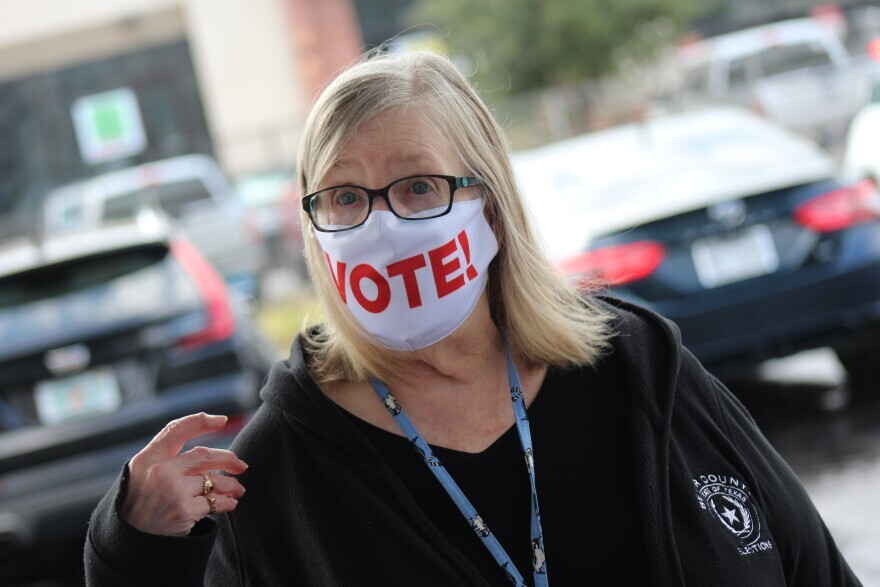Bexar County Elections Administrator Jacque Callanen told county commissioners the rejection rate of mail-ballot applications has slowed during her appearance before them this week.
Callanen said last week's rejection rate was around half of all applications being received, but this week it was closer to one out of every 10.
Callanen blames the higher rejection rate on outdated applications that were stocked piled at locations run by election-related organizations, party offices and churches. She said most of those locations have stopped, so the rejection rate is improving.
Senate Bill 1 requires voters to provide either a driver's license number or Social Security Number as required under SB1, but Callanen urged voters to make sure both are on the application to further reduce rejections.
"We have a higher percentage of matching one of those numbers. If they only send in one number and it's the wrong number from what we have on their record, we're having to reject it," she said.
Commissioner Justin Rodriguez asked Callanen if mail-in ballot applications were lower than previous comparable elections due to voters being intimidated by SB 1. She said the number of applications is about the same.
"We're pretty much steady, so that is very, very reassuring," she told Rodriguez.
Democratic County Judge Nelson Wolff asked Callanen if she could tell if most of the rejected mail-in ballot applications came from Democrats or Republicans. Callanen replied most belonged to Democrats.
"Well, it's working, what they tried to pass," said Wolff to Callanen about the GOP-backed SB 1, pushed through the state legislature in Austin.
Callanen openly expressed frustration with another aspect of the law from the viewpoint of an election's administrator working to promote a healthy turnout by voters.
"SB 1 has basically said that no government funds will be provided to anyone that is promoting voting, which makes no sense whatsoever, but that was an editorial comment on my side," she said.
One other recent issue that has popped up is a lack of supply of yellow paper. The state requires sample ballots to be printed on yellow paper, which Callanen said is impossible to find due to supply chain issues caused by the pandemic. She said she thinks they bought up the last seven cases they could find.
Voters often request paper sample ballots to study the candidates and the issues before an election and speed their time through the polls.
She said they have asked for direction on the issue from the Texas Secretary of State's Office, which has a division that oversees elections in the state.
"We had even asked if there is some way we could print on white and put like a yellow banner across the top that would say sample ballot because the law specifies that the samples must be yellow."
She said as of Tuesday they had not heard back from the secretary's office.
Now that most ballots are cast electronically, the paper color issue seems archaic. Commissioner Tommy Calvert suggested the state might want to show some flexibility on the law given the supply chain issue.
Sec. 52.008 of the Texas Election Code makes clear that a sample ballot may only be printed on yellow paper. The intention of this section is to ensure that sample ballots can be distinguished from the actual ballots that are cast and counted in an election.
An electronic version of sample ballots for the joint primary elections can be viewed at the county election's office main web page through bexar.org.




